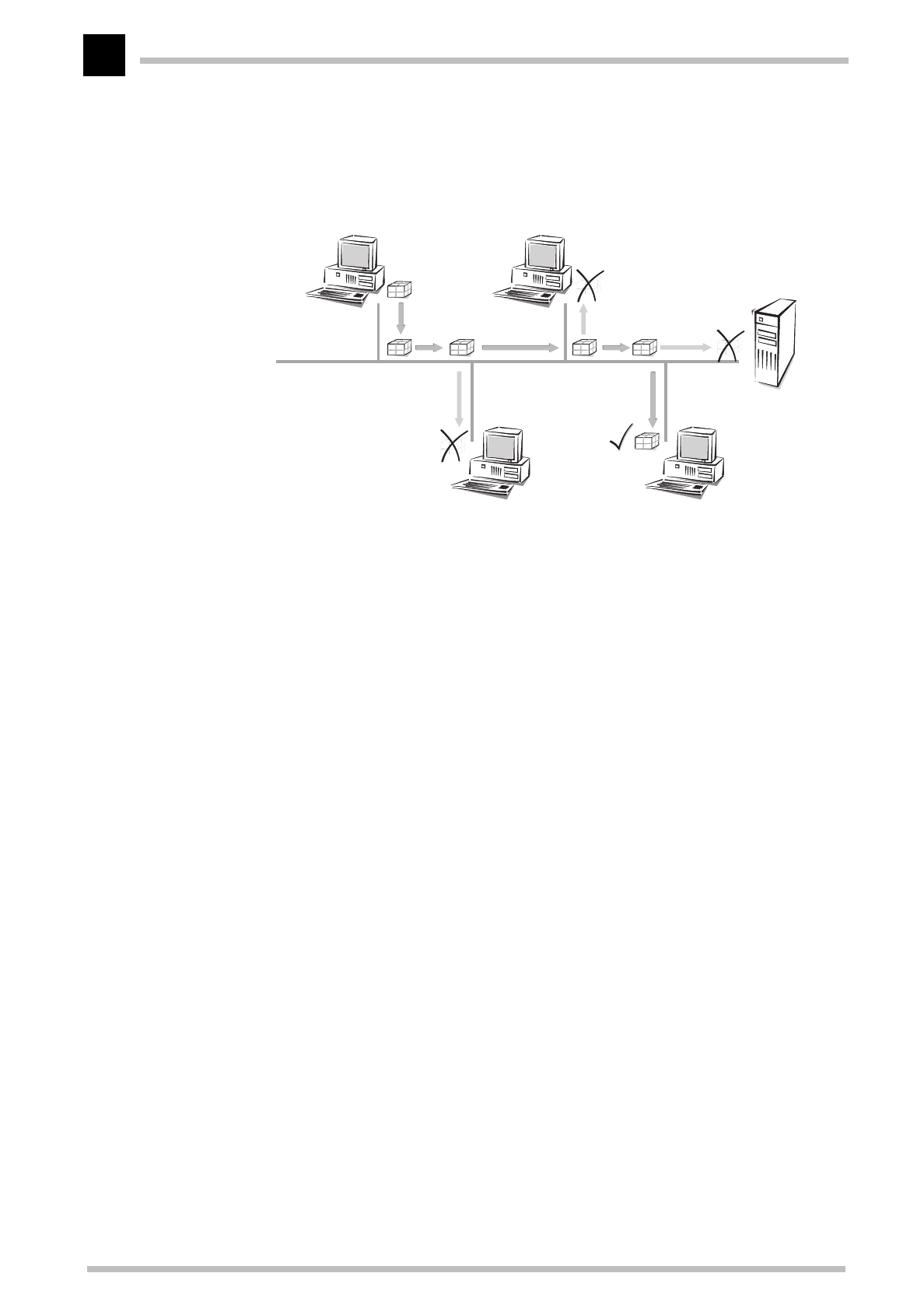
Technical basics
ELSA MicroLink Cable
52
Kinds of networks
Protocol
An important prerequisite for communications between computers is a common
language among the hosts. In the world of network technology this language is
called“network protocol” or simply“protocol”.
TCP/IP
The most broadly distributed network protocol is the TCP/IP (
T
ransmission
C
ontrol
P
rotocol/
I
nternet
P
rotocol). It is used mainly in the Internet, but nowadays more and
more company networks use it. Examples of other network protocols are IPX or Apple
Talk. Because of its wide use, this chapter deals mainly with the TCP/IP.
IP network
All hosts wanting to communicate using the TCP/IP protocol have to be plugged into the
same network and have to have the TCP/IP protocol (also known as TCP/IP stack)
installed. Such a network is referred to as an IP network.
Internetwork
Internet
The connection of multiple networks based on the IP protocol is referred to as an
internetwork. The largest union of many small, public IP networks is the Internet.
Local network
(LAN)
A network covering a limited area with hosts on the same hierarchical level and using
the same medium (shared medium) is called a local network (
L
ocal
A
rea
N
etwork, LAN).
IP addressing
Packet-oriented
transfer
In IP networks the communication between computers takes place in a packet-oriented
fashion. This means that data or messages are packed together in packets of variable
length and are as such sent from the source computer to the target computer. Apart from
Host:
Sender
Host
Host:
Recipient
Host
Data packet
with recipient
information


















